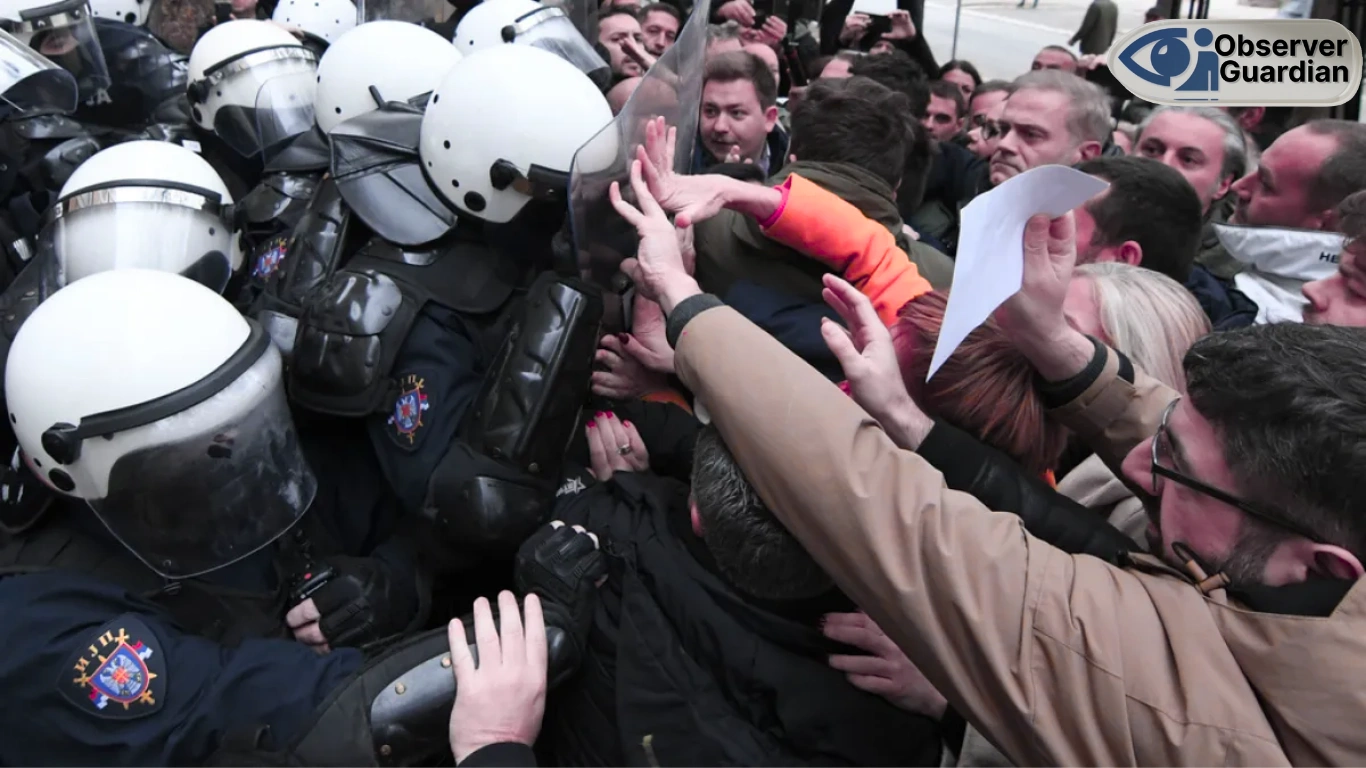Police in Serbia say they’ve arrested 11 people tied to a string of hate driven acts across Europe. The group is accused of trying to stir up trouble between religious communities in France and Germany, leaving pig heads at mosques, defacing Jewish sites, and targeting Holocaust memorials.
The incidents happened over several months this year. In France, the suspects allegedly left pig heads outside Paris mosques, some marked with President Emmanuel Macron’s name. In Germany, they staged strange displays near Berlin’s Brandenburg Gate, including concrete skeletons painted with inflammatory slogans. Serbian authorities also say synagogues, a Jewish restaurant, and a Holocaust museum were vandalized with green paint.
What makes this more than just vandalism is the suggestion that the group wasn’t acting alone. According to Serbia’s Interior Ministry, at least one fugitive suspect organized the operations under the guidance of a foreign intelligence service. Officials didn’t name which country might be behind it, but the idea of outside powers using hate crimes to divide European societies is raising alarm bells.
French and German investigators see this as more than symbolic attacks. The choice of targets like Muslims and Jews looks calculated to inflame old tensions. Analysts have even compared the tactics to influence campaigns that Europe has seen before, where acts of provocation are designed to spark outrage, feed conspiracy theories, and destabilize communities.
For Serbia, the arrests carry political weight too. The country has been trying to show it’s serious about rule of law as it seeks closer ties with the European Union. At the same time, its close relationship with Russia complicates how these arrests are perceived abroad. Critics will be watching to see whether Serbia fully follows through with prosecutions, especially if foreign involvement is proven.
So far, the 11 suspects are in custody while police continue digging into who trained them, how they coordinated, and whether more people are involved. Investigators say surveillance footage and car records played a role in tracking them down.
This case is a reminder that hate crimes don’t happen in a vacuum. They can be part of something larger sometimes even manipulated by actors outside the country meant to exploit divisions already simmering beneath the surface. European authorities are likely to respond by tightening cooperation across borders, both on intelligence work and on preventing religiously motivated violence.
For now, the arrests send a clear message that trying to pit people against each other along religious lines won’t be ignored. What’s less clear is who exactly was pulling the strings, and what the bigger endgame might be.








